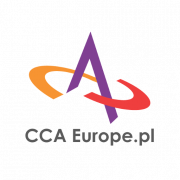Fintech Connect 2022 webinar. What is ISO 20022 readiness in UK?

Most banks are only partially ready for ISO 20022, according to a survey conducted during the webinar at the Fintech Connect 2022 conference. Can we indeed get ready for payment innovations, or are we to brace ourselves for a new Neverending Story of the tech world?
The state of work on ISO 20022 has been inflaming the global banking sector for a long time. Is a revolution in transaction and payment processing really around the corner, as some are predicting? Optimism about the future is intertwined with concerns about the humdrum of implementation.
The importance of ISO 20022 adoption as a transformative process for financial institutions cannot be overstated. This ongoing migration timeline is crucial for banks to transition effectively to the new messaging standard, bringing significant benefits to the payments ecosystem. The state of work on ISO 20022 was the subject of a webinar organized as part of the Fintech Connect 2022 conference. It was attended by experts from British financial organizations who manage the ISO 20022 implementation works in their respective organizations: Rachel Hunt, Head of Strategy and Development at Volante Technologies, Joanne Fraser, Head of Cash Transactions at Standard Chartered and David Heron, Head of Standards at Standard Chartered Pay.uk.
The new standard is as effective as it is common
During the webinar, the panelists emphasized that the implementation of ISO 20022 should be understood as the culmination of a long-term effort that banks have been making for some time now. However, only 13% of the surveyed webinar attendees said that banks are “fully ready” to support the new .xml-compatible SWIFT MX messages. One quarter of the participants said that banks are “mostly ready” (25%), and more than 40% that they are only partially ready (42%). Interestingly, as many as 21% of webinar participants said that banks are not ready to operate under the new standard at all, and 16% do not know what changes should be introduced with regard to ISO 20022.
As the results of the webinar survey show, some banks are early birds in ISO 20022 migration, some are mid-way, and some are far behind. The panelists agreed that this is not a threat, as long as the sector consistently implements the subsequent requirements of ISO 20022. Sooner or later, every bank must meet new requirements in terms of structured data exchange, message processing and system interoperability. The system will work – and bring the assumed benefits – provided that it is widely adopted. In other words, the banking sector will be truly ready to receive ISO 20022 messages when its weakest link is.
How to leverage the new leaf in cross border payments?
The guests of the webinar stated that the ISO 20022 messaging standard enforced a large-scale review of banking procedures and systems. In the process, many banks realized that the new message exchange standard introduced along with ISO (SWIFT MX) offers an opportunity to introduce innovations in processes, communication and cooperation with customers, both individual and corporate. As it were, during the ISO 20022 implementation projects, the banks decided to set up broader, but very specific goals for themselves.
The panelists emphasized that the new standard contributed to innovation and a comprehensive refreshment of different market infrastructures. They also identified areas where the industry sees opportunities for deep change, improvement and optimization. According to the invited experts, these include both internal processes (management information flow, cash management or accounting reconciliations) as well as industry and regulatory aspects (reporting to supervisory authorities, fraud prevention). However, what seems to be missing in the discourse on ISO 20022 is specific examples of how to leverage the new opportunities brought about by the implementation of ISO 20022. What kind of innovative solutions can be introduced, based on the potential of the new message format? How about engaging the customer in real time, in the spirit of data-driven banking? If you want to learn more about the ins and outs of SWIFT MT to MX conversion, download the ebook “ISO 20022: a new standard in a complex environment“.
ISO 20022 migration experts needed immediately!
During the webinar, experts pointed to one more challenge that banks must face in the context of ISO 20022: the availability of human resources. The initial deadline for the migration to ISO 20022 was set for November 2022 but was pushed to March 2023. With the technical requirements for the new standard, and the multitude of markets and areas where change is taking place, banks have to jostle for specialists. Additionally, the critical deadline of November 2025 for the full migration to ISO 20022 means that financial institutions and Payment Market Infrastructures must prepare for the cessation of support for legacy MT messages and ensure readiness for cross-border transactions using the new protocol. To remain relevant in the ISO 20022 race, you need to retain or acquire the best experts. If you need support from a team of independent analysts and implementation consultants with many years of experience in international financial institutions, do not hesitate to contact us.

